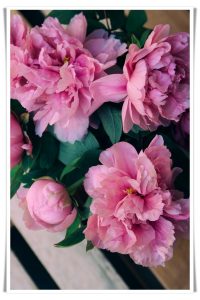 Gardening can be very intimidating to someone that has never done it before. It can easily lead to a bit of information overload because of all of the resources available to new gardeners. Below are some tips to assist you in organizing all of this information so that you can start gardening properly.
Gardening can be very intimidating to someone that has never done it before. It can easily lead to a bit of information overload because of all of the resources available to new gardeners. Below are some tips to assist you in organizing all of this information so that you can start gardening properly.
Your tool handles can double as measuring sticks. Large handled tools such as shovels, rakes, and hoes can be used as measuring sticks. Lay the handles on the floor, then run the measuring tape down next to them. You can label distances using a permanent marker. When you are at work in the garden, you will always have a handy measuring device on each and every tool.
If you are new to gardening, be sure to keep it simple. Overplanting at first can lead to stress and a backyard that’s a mess rather than a beautiful garden. Also, larger gardens are more prone to weeds. Keep it small at first, and you will have a better experience.
Use both well-matured compost and mulch in your garden. Compost will naturally help plants grow faster, taller, and healthier, and increase the yield of your vegetables. Mulch helps prevent the growth of weeds. Mulch also shades the ground around the roots of your plants, protecting them from heat and conserving water.
Plants are generally best grown in their native environments. Grapes for example, require a dry, hot environment to maximize their growth while minimizing the amount of microbes that are dangerous to them. When growing plants it’s important to realize their region of origin; generally it’s best to identify the local varieties of horticultural species.
Don’t grow food no one will eat. Just because you can grow something, doesn’t mean you should. If your kids don’t like spinach now, fresh spinach from the garden isn’t going to change that and much will go to waste. Consider what you and your family like to eat and then determine your garden accordingly.
For garden plants that crave and need a lot of water, use five gallon buckets to keep those thirsty fruits and vegetables happy. Simply drill or punch several 1/8″ to 1/4″ holes into the bottom of a five gallon bucket, fill with water and set near the parched plant. Gravity allows for a slow and steady watering of those plants and if you live in an area where you get frequent rain, you will be capturing plenty of rain water to keep those buckets fairly full all season long.
Use foliar feeding to help shocked or struggling plants recover. Plants can consume nutrients through their leaves quicker than through their roots. If they are having trouble getting nutrients through their roots, spray their leaves with liquid food. Be careful not to overfeed them this way. They may need to feed only twice a month.
Hopefully, these tips have provided you with some very valuable information, as well as given you a way to organize all of the thoughts and information you may have already had on gardening. Keeping these tips in mind when you start growing your garden can help you to one day become a very successful gardener.